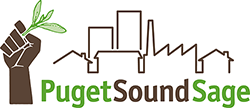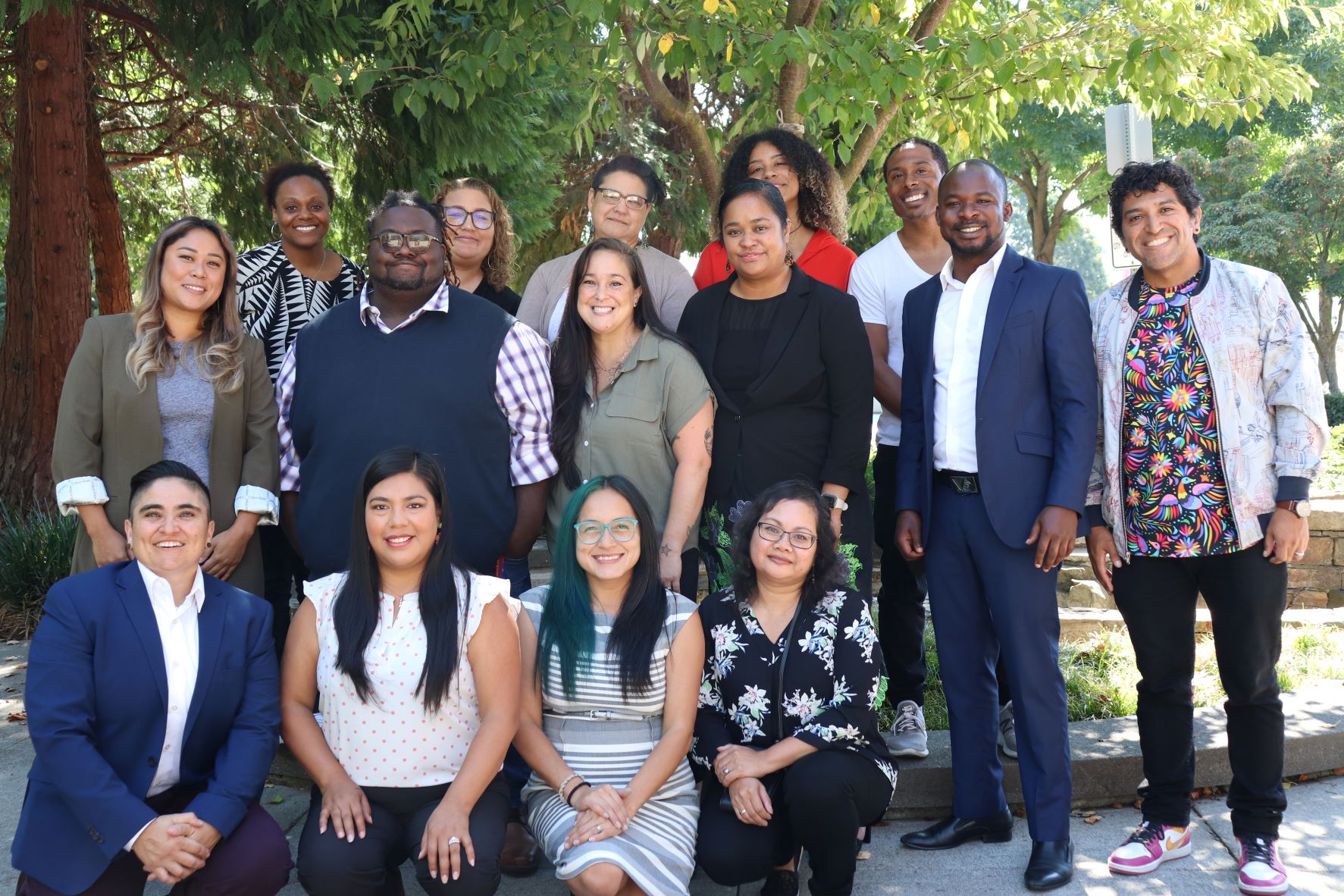The daughter of a Scotch Irish blue-collar worker from Chicago and a Guyanese immigrant, Siobhana McEwen grew up in a small rural town in western Nebraska where not many neighbors looked like her. Being far away from extended family, she embraced and relied upon members of her chosen family.
Siobhana recalls being fortunate enough to live very close to the Pine Ridge Reservation and a small state college where her dad taught. The school had a robust international program that connected students from every corner of the globe. “Even though I didn’t grow up with my mom, I grew up in a home where there was somebody from Ethiopia next to somebody from the Oglala Lakota Nation, next to somebody from Nebraska, all sitting around my kitchen table for supper or coming over for coffee in the afternoon.”
 Siobhana came of age hearing stories about growing up in different parts of the world, taking in contrasting details, but more often than not, hearing very similar experiences.
Siobhana came of age hearing stories about growing up in different parts of the world, taking in contrasting details, but more often than not, hearing very similar experiences.
Yet Siobhana still felt a sense of alienation, being half-white and growing up without her Guyanese mother. “To be frank, I didn’t really see myself as a person of color until I was halfway through my graduate program.” That was same time she joined Sage’s Community Leadership Institute – a six-month program that trains emerging leaders of color to sit on municipal boards and commissions – with the recommendation from her classmate Eric Opoku Agyemang, who heads the leadership program.
Launched in 2015, Sage’s Community Leadership Institute (CLI) was founded on the idea that we need more than just a seat at the table – we want to build the bench so leaders of color can sit side by side.
 While the CLI curriculum focuses on building technical knowledge on the nuts and bolts of local government processes such as municipal budgeting, parliamentary procedures, lawmaking, and progressive policies affecting housing, transit, and climate justice; at its core is a peer cohort model that allows emerging leaders the opportunity to share deeply about challenges and build lasting relationships along the way.
While the CLI curriculum focuses on building technical knowledge on the nuts and bolts of local government processes such as municipal budgeting, parliamentary procedures, lawmaking, and progressive policies affecting housing, transit, and climate justice; at its core is a peer cohort model that allows emerging leaders the opportunity to share deeply about challenges and build lasting relationships along the way.
From the start, Siobhana was surprised with how comfortable she felt being part of her cohort. “It might sound simplistic to say that the biggest thing that surprised me was how comfortable I felt. Why does that even matter, right? But the fact is when you’re a person of color, sometimes you stay silent. You don’t grow into who you really can be in these systems because those spaces don’t want you and they silence you.”

“To be with a group where you can really show up with your authentic self and that is met with warmth and compassion, it gives you the courage and confidence to bring that outside of that space, into spaces of dominant culture. It fills your bucket in a way that says, ‘I can do this.’”
The Community Leadership Institute changed Siobhana’s trajectory in her MSW program, from wanting to be a clinician to working in policy for systemic change. Had she not gone through the Institute, she says she never would’ve realized her potential to work on policy and engage in community organizing as a way to create change. “CLI changed my life. Had I not done the program, I probably would still be banging my head against the wall as a clinician, working within systems that really don’t serve people.”
Siobhana now works as the Equity and Advocacy Director for Council for the Homeless, and serves as the Chair of the Southwest Washington Equity Coalition (SWEC) based in Vancouver, WA. Siobhana moved to Vancouver in 2019 to start a family and immediately felt the energy around the community to move the needle and organize. “We don’t want to live in a place where hate and discrimination are just accepted.”
Siobhana considers it the power of connections between folks of color when she and Eric met again two years later, this time to pitch a partnership between SWEC and Sage to expand the Community Leadership Institute to Vancouver. This September, after months of planning together, we jointly launched the Vancouver Community Leadership Institute, expanding for the first time outside of King County.
“I think it’s a general misconception that the federal government makes all the decisions. But when we talk about things like zoning, where we’re building homes, who gets to live in a community, how much we fund libraries and school districts – that all gets determined at the local level and has a much more direct impact on our lives.”
The need for our work is clear. We’ve received dozens of calls from local, regional, and even state officials requesting CLI graduates, and we’re rapidly trying to raise the resources needed to meet the demand.
Will you invest in the power of transformative community leadership by giving to Puget Sound Sage today? Give today and your donation will be matched dollar for dollar up to $50,000 through the end of the year thanks to the Solutions Project.
Your year-end gift ensures we have the funding necessary to build critical leadership infrastructure and creates supportive spaces for emerging leaders of color to come together to connect, learn, cultivate courageous leadership, and be ready to govern and lead.

